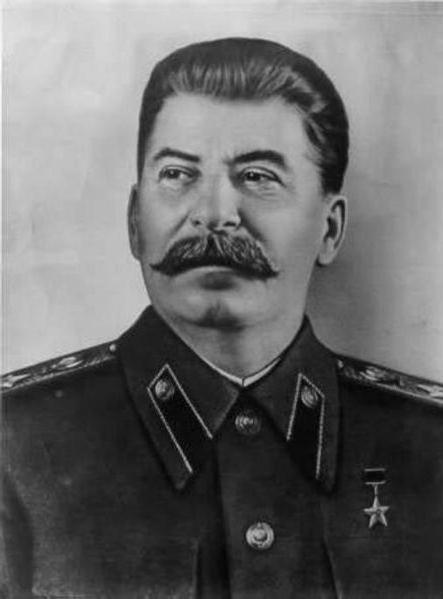When using the term "political system of society" or its synonym - "political regime", we mean the established order of relations between power structures and the masses subject to them, that is, those who govern and those who are obliged to obey them, those who dominate, and those who obey their will. Any political system first of all tries to give a theoretical substantiation of the ideological, spiritual and other values that underlie its life.

Typology of Political Systems
In the course of its history, mankind has developed many forms of organization of societies. In view of this, the types of political systems are infinitely diverse. All of them were a product of the development of civilization at various stages of its development. Just as world progress was moving unevenly, and for a number of reasons it was either speeding up or slowing down, so were government systems, replacing each other extremely slowly in some cases, stretching for centuries, and in others it happened in a matter of days.
In addition, the types of political systems cannot always be clearly distinguished. This is understandable. For example, elements of a political system that has become obsolete and giving way to its successor, often continued to live in the latter for a long time, despite its archaic nature. In order to have solid guidelines when considering the history of the political development of society, we distinguish four main forms of political regimes. These include: democracy, theocracy, totalitarianism and authoritarianism. What do these concepts include?
Democratic society
Democracy - this is the elusive ideal of the organization of society, to which mankind has gone throughout its history. The term itself, consisting of two Greek words translated as “people” and “power”, defines the essence of the system designated by it - democracy. That is, this is a political regime in which collective decision-making on the most important issues is carried out.

In the modern world, this principle finds expression in the fact that the broad masses of citizens can themselves appoint leaders to govern them. To do this, there is a system of elections, honestly carried out on an adversarial basis. It follows that only a people in its entirety can be legitimate source of power. On the basis of such elections, the principle of public self-government is implemented, aimed at satisfying common interests.
Models of a Democratic Society
Over the centuries-long period of development of democracy, many models of its practical implementation have been proposed. This is, first of all, “direct democracy”, in which a decision is made by reaching consensus or by subordinating the minority to the majority. Another model can be called "representative democracy", in which the masses of citizens exercise their rights through their elected deputies or other officials. This list can be continued for a very long time. It is generally accepted that democracy is the political system of modern Russia.
Features of an authoritarian society
Another form is authoritarianism. In societies of this type, the main carrier of power (for example, a dictator) himself proclaims his right to govern the state. History shows that the rise of an authoritarian ruler, as a rule, occurs as a result of a revolution that broke out in a country where the legal system is unable to cope with the current situation.A coup in this case completely destroys the old legal system. The resulting temporary legal vacuum also makes it possible for an authoritarian ruler to come to power.
The main sign of authoritarianism is personal loyalty to the ruler and the unquestioning submission of society to its leaders. The authoritarian political regime does not allow manifestations of democracy either in relation to free elections or in matters related to government. To all these signs the political system of the USSR corresponded in many respects.

The diversity of authoritarian societies
Speaking about the varieties of authoritarian regimes, we can distinguish several of the most common types. First of all, these are traditional absolutist monarchies, examples of which are Morocco, Saudi Arabia, Nepal, Ethiopia (until 1974) and a number of other states.
The authoritarian regimes of the oligarchic type follow. To make it clearer what is at stake, it is enough to mention the countries of Latin America, among which the most characteristic in this respect are Guatemala, Nicaragua and Cuba. This also includes states with the so-called post-colonial authoritarianism - Cameroon, Tunisia and almost all African countries.
Special Authoritarianism Models
A special form of post-totalitarian authoritarianism gave rise to the collapse of the USSR. The former party and military-political nomenclature of almost all Soviet republics, through large-scale fraud and fraud, formed a class of businessmen and monopolist oligarchs, thereby seizing power in their countries. The modern political systems of Iraq, Libya and Egypt fall into the same category.
The military regimes of Peru and several others complete the list of authoritarian countries. Many states of the Islamic world, in which unlimited power belongs to the clergy, can rightfully be attributed to this.
Totalitarian state regimes
The concept of a political system called totalitarianism implies, first of all, full, or total control of political power over all aspects of human life. Moreover, any opposition actions are suppressed and suppressed in the most cruel way. One of the most important features of totalitarianism is the creation of the illusion that the actions of the authorities are fully supported and approved by the population.

The first totalitarian state to appear in Europe is Italy, when Benito Mussolini came to power in the early twenties. He was characterized by unlimited statutory authority, disregard for the constitutional rights of citizens, massive repression of opponents of the regime and the militarization of society. By the way, the term “totalitarianism” was first introduced by the Italian liberal politician Giovanni Amendola, when in 1923 he criticized the political system of Mussolini. Later, the Italian fascists themselves willingly used it. In subsequent years, totalitarian political systems were established in fascist Germany and the Soviet Union during the period of Stalinism.
Theocratic systems
The typology of political systems in a special group distinguishes state regimes in which religious figures have a decisive influence on the formation of internal and foreign policy countries. They are called theocratic. This term is derived from Greek words translated “god” and “control”. It is understood that they are governed on behalf of God himself, and the representatives of the clergy in power are expressors of his will.
If we compare all types of political systems by the time of their occurrence, then, undoubtedly, theocratic will be the most ancient. Her ideologist is considered the ancient Greek philosopher Herodotus. According to his teaching, theocracy is an expression of harmony established in the world order by the gods themselves - the inhabitants of Olympus.However, the roots of this phenomenon go back to much more ancient times.

Ancient theocratic systems
Researchers have found that, for example, in the ancient states of Egypt, Mesopotamia and Mexico, the supreme rulers were priests, that is, they concentrated both secular and spiritual power in their hands. In solving various government issues, their main role was played by their religious beliefs. By the way, there were such rulers, who even proclaimed themselves gods.
A vivid example of theocracy can be found if you look through the Bible. It describes how, at an early stage in the formation of the state, judges were in power, through whom God expressed his will. The mechanism of this process is described in detail. To make decisions, lots were used. These were two identical in shape and size, but differing in the color of the stone, hidden in a bag. The priest was asked a question formulated in such a way that suggested only two possible answers - yes or no. Then everything is simple. At random, a white stone denoted a positive answer, and black - a negative one. It was believed that God's will manifested itself in this.
Theocracy of the Islamic world
This is an example from the distant past. But even nowadays, elements of a political system characterized as theocracy can be observed in many Islamic states, primarily in Saudi Arabia and Iran. In these countries, religious courts have been established, in the competence of which are all legal issues. In addition, they have a religious police force, whose duties include total control over compliance with all social norms.

These are the two most striking examples, but the types of political systems built in accordance with the requirements of the Sharia are also characteristic of a number of other Middle Eastern states. To one degree or another, these include Turkey, Indonesia, Pakistan, and many others.
The political component of human culture
Continuing the conversation about various political regimes, one cannot help but touch upon such an important concept as political culture. Her role is unusually high due to the fact that it is a system of moral values, attitudes and beliefs, on the basis of which a pattern of human behavior is developed. It is she who ensures the reproduction of one or another social model.
Political culture is an integral part of the universal. It includes many elements of the spiritual sphere related to the level and characteristics of the political orientation of citizens, due to the experience of previous generations. The quality of reproduction of these elements in the current life depends on it. For this reason, the level of political culture determines the degree of political maturity of society.
One of the most important elements of this culture is political consciousness. It consists of a number of ideological components, such as knowledge, beliefs and characteristics of thinking. In addition, the political consciousness also has a psychological component. It includes feelings, emotions, experiences and moods. All this determines the model of behavior of members of society. The concept of a political system expresses the totality of all these factors on the basis of which a particular society exists.
Assessment of the political status of modern Russia
In conclusion, it should be said about what constitutes the political system of modern Russia. First of all, we note that it was built on the basis of the 1993 Constitution, which contains a number of provisions that make it possible to characterize it as fully complying with democratic requirements.

However, despite this, reality suggests that at this level the Russian political system does not fully meet the criteria of democracy.This primarily relates to the issue of responsibility of the authorities to society and is manifested in the absence of effective control over the performance of its functions. Within the framework of the current political system, democratic forms of exercising power are sometimes replaced by elements that depart from these principles.
